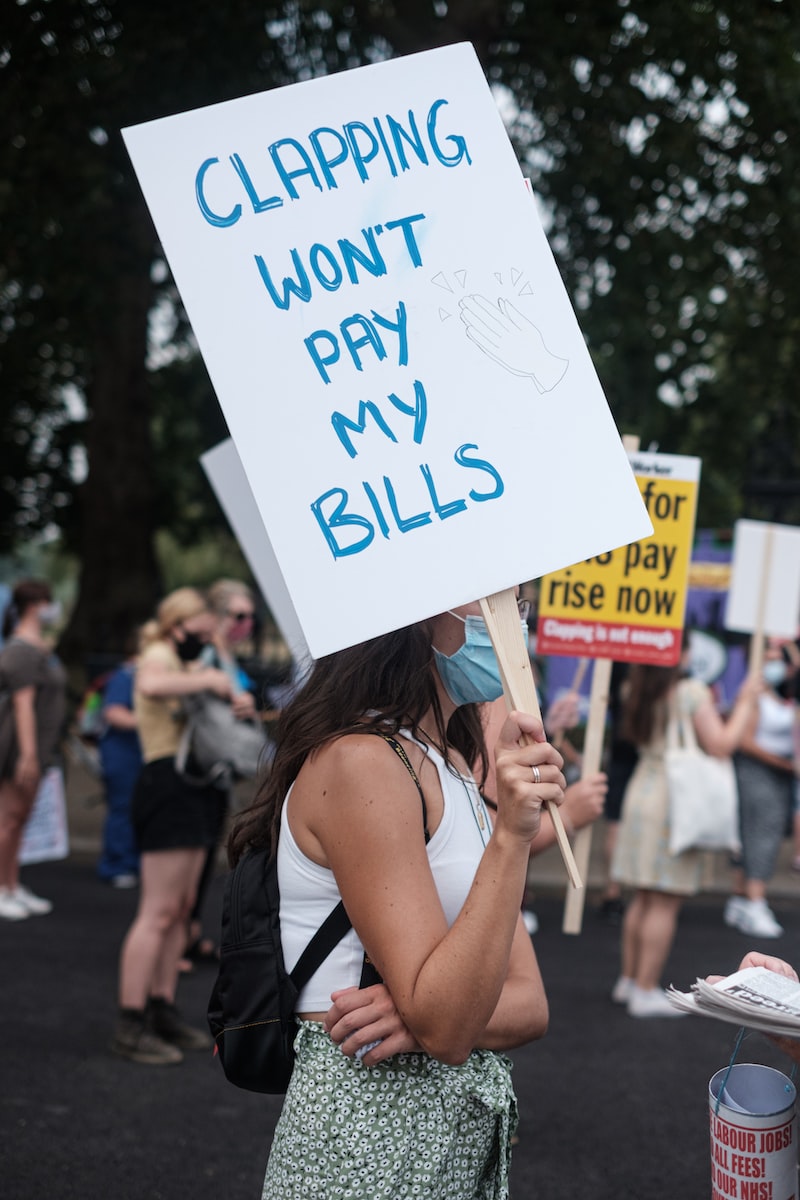Table of Contents
The minimum wage in South Africa is a topic of significant importance as it directly affects the livelihoods of millions of workers in the country. In this article, we will delve into the current standards of the minimum wage in South Africa and shed light on its impact.
So, what exactly is the minimum wage in South Africa? The Minimum Wage Act was introduced in 2019 and sets a floor for wages, ensuring that no worker earns less than the prescribed amount. The current national minimum wage stands at R21.69 per hour. This means that workers should receive at least this amount for every hour worked.
However, it’s essential to note that the minimum wage varies depending on the sector. For example, domestic workers have a slightly lower minimum wage of R19.09 per hour, while farmworkers’ minimum wage is set at R20.14 per hour. These variations aim to address the unique circumstances of different industries and protect vulnerable workers.
The introduction of the minimum wage in South Africa has been a crucial step towards reducing income inequality and promoting fair labor practices. It provides a safety net for workers by ensuring they earn a decent wage, which can contribute to improved living conditions and poverty alleviation.

Moreover, the minimum wage serves as a catalyst for economic growth. By providing workers with adequate compensation, it boosts their purchasing power, leading to increased consumer spending and stimulating demand in the economy. This, in turn, can drive business growth and job creation, fostering a healthier and more sustainable economy.
While the minimum wage has undoubtedly brought positive changes, some critics argue that it may lead to potential job losses, particularly in small businesses. They contend that higher labor costs could result in employers cutting back on hiring or even downsizing their workforce. However, proponents of the minimum wage assert that any potential adverse effects are outweighed by the benefits it brings, such as reduced inequality and enhanced social welfare.
the current minimum wage in South Africa plays a significant role in setting fair standards for workers’ compensation. It aims to ensure that no worker is exploited
and works towards reducing income inequality. By striking a balance between protecting workers’ rights and promoting economic growth, the minimum wage serves as an important pillar of South Africa’s labor landscape.South Africa’s Minimum Wage: Struggles and Successes in Ensuring Fair Pay
When it comes to ensuring fair pay for workers, South Africa has taken significant steps by implementing a minimum wage policy. This move aims to address the longstanding issue of income inequality and improve the livelihoods of low-income earners. However, the journey toward achieving fair pay has been a blend of struggles and successes.

One of the primary challenges faced in establishing a minimum wage in South Africa was striking a balance between the needs of workers and the concerns of employers. Critics argued that setting a higher minimum wage could lead to job losses and hinder economic growth. To address these concerns, policymakers engaged in extensive consultations with various stakeholders, including trade unions and business representatives. This collaborative approach aimed to find common ground and ensure that the minimum wage would be both fair and sustainable.
Another obstacle encountered was the vast informal sector in South Africa, which includes a significant number of workers outside the scope of formal employment. Bringing these workers under the protection of a minimum wage posed a considerable challenge. The government recognized the importance of extending fair pay to all workers and launched awareness campaigns to encourage compliance within this sector. While progress has been made, there is still work to be done to ensure that all workers, regardless of their employment status, receive fair compensation.
Despite these challenges, the implementation of South Africa’s minimum wage policy has also yielded notable successes. The introduction of a minimum wage has provided a safety net for vulnerable workers who were previously subjected to exploitative wages. This initiative has had a positive impact on reducing poverty and improving living standards for many South Africans. It has also contributed to narrowing the income gap and promoting social justice in the country.
South Africa’s journey towards ensuring fair pay through the implementation of a minimum wage has been characterized by both struggles and successes. Overcoming challenges related to finding a balance between worker needs and employer concerns, as well as extending fair pay to the informal sector, has been crucial. Nonetheless, the positive outcomes of this policy in reducing poverty and promoting social justice underscore the importance of persisting in the pursuit of fair compensation for all workers.
Exploring the Impact of South Africa’s Minimum Wage Increase on Low-Income Workers
Have you ever wondered how an increase in minimum wage can affect the lives of low-income workers in South Africa? Well, let’s dive into this topic and explore the potential impact it may have.
The recent minimum wage increase in South Africa has sparked both hope and concern among low-income workers. On one hand, the raise signifies a step towards improving their financial well-being. On the other hand, there are worries about potential job losses and the overall economy.
For many low-income workers, the increased minimum wage means more money in their pockets. It provides them with a chance to better support themselves and their families, helping to alleviate some of the financial burdens they may face. With higher wages, they can afford basic necessities such as food, shelter, and healthcare, thus improving their living standards.
Moreover, the minimum wage increase may also stimulate consumer spending. When low-income workers earn more, they tend to contribute more to the economy by purchasing goods and services. This, in turn, can boost local businesses and create a positive ripple effect throughout the community.
However, it’s essential to consider the potential drawbacks as well. Some critics argue that a higher minimum wage could result in job losses, particularly in industries where profit margins are thin. Employers might be reluctant to hire additional staff or even cut back on existing positions to compensate for the increased labor costs. This could lead to higher unemployment rates, especially among low-skilled individuals who rely heavily on minimum-wage jobs.
Finding the right balance is crucial. While increasing the minimum wage can provide immediate relief for low-income workers, it must be accompanied by measures to support businesses, encourage job growth, and ensure a sustainable economic environment.
the impact of South Africa’s minimum wage increase on low-income workers is a complex issue with both positive and potentially negative consequences. While it offers the promise of improved livelihoods and increased consumer spending, there are concerns about potential job losses. Striking the right balance between fair wages for workers and maintaining a healthy business environment is crucial for achieving long-term positive outcomes for all parties involved.
Minimum Wage Wars: Debating the Effectiveness of South Africa’s Current Standards
Introduction:
Are South Africa’s current minimum wage standards effective in improving the lives of its workers? This question lies at the heart of a heated debate surrounding the country’s labor policies. While proponents argue that higher minimum wages lead to reduced poverty and increased productivity, critics contend that they stifle economic growth and job creation. In this article, we delve into the details to explore the intricacies and potential impact of South Africa’s minimum wage policies.


The Impact on Workers:
South Africa’s minimum wage regulations aim to protect vulnerable workers from exploitation and ensure fair compensation. Advocates argue that raising the minimum wage allows low-income earners to meet their basic needs, reducing income inequality and lifting families out of poverty. By increasing disposable income, workers can improve their standard of living and contribute to economic growth through increased consumption.
However, critics caution that high minimum wages may have unintended consequences. They argue that businesses, especially small enterprises, may struggle to afford increased labor costs. As a result, they may be forced to cut jobs or reduce working hours, potentially exacerbating unemployment rates. Moreover, some fear that automation could replace human workers as companies seek cost-effective alternatives, further limiting job opportunities for those at the lower end of the skills spectrum.
Balancing Act:
Finding an optimal minimum wage level is a delicate balancing act. South Africa’s policymakers need to consider factors such as the cost of living, inflation rates, skill levels, and regional disparities. The challenge lies in striking a balance between providing decent wages for workers while not burdening businesses to the extent that it leads to job losses or closures.
While there is no universally agreed-upon ideal minimum wage, experts suggest that regular evaluations and adjustments are crucial. By monitoring the impact of minimum wage increases, policymakers can make informed decisions about whether adjustments are necessary to sustain both worker well-being and economic stability.
Conclusion:
The debate surrounding South Africa’s minimum wage standards is complex and multifaceted. The aim of these policies is to protect workers and reduce income inequality, but their effectiveness remains a subject of ongoing discussion. Striking the right balance between fair compensation and economic viability is essential. As South Africa moves forward, policymakers must carefully analyze the impact of minimum wage changes to ensure that they truly uplift the workforce without hampering economic growth.
Raising the Bar: How South Africa’s Minimum Wage Compares to Global Standards
Are you curious about how South Africa’s minimum wage measures up against global standards? Well, let’s dive into the details and explore how the country raises the bar for fair compensation.
When it comes to setting a minimum wage, each country follows its own guidelines and factors in various considerations. In South Africa, the minimum wage is determined by the National Minimum Wage Act, which was introduced in 2018. This legislation aims to address income inequality and improve the standard of living for the country’s workers.
Compared to some other nations, South Africa’s minimum wage may seem relatively lower at first glance. However, it’s essential to consider the cost of living and economic conditions within a specific country. The cost of goods and services, housing, and healthcare can vary significantly from one nation to another. Therefore, a direct comparison of minimum wages may not always provide an accurate picture.
To better understand how South Africa’s minimum wage stacks up globally, we can examine key indicators such as purchasing power parity (PPP). PPP takes into account the relative prices of goods and services in different countries to determine the real value of a wage. It helps to level the playing field and provides a more comprehensive comparison.
Another crucial aspect is the social security net provided by each nation. Some countries with lower minimum wages might compensate through robust social welfare programs, ensuring that citizens have access to affordable healthcare, education, and other essential services.
comparing South Africa’s minimum wage to global standards requires considering multiple factors such as the cost of living, purchasing power parity, and social welfare provisions. While the nominal figure may appear lower, these additional aspects contribute to the overall well-being and quality of life for workers. It’s important to remember that raising the bar goes beyond a simple number; it involves creating an environment where everyone has a fair chance at a decent livelihood.




